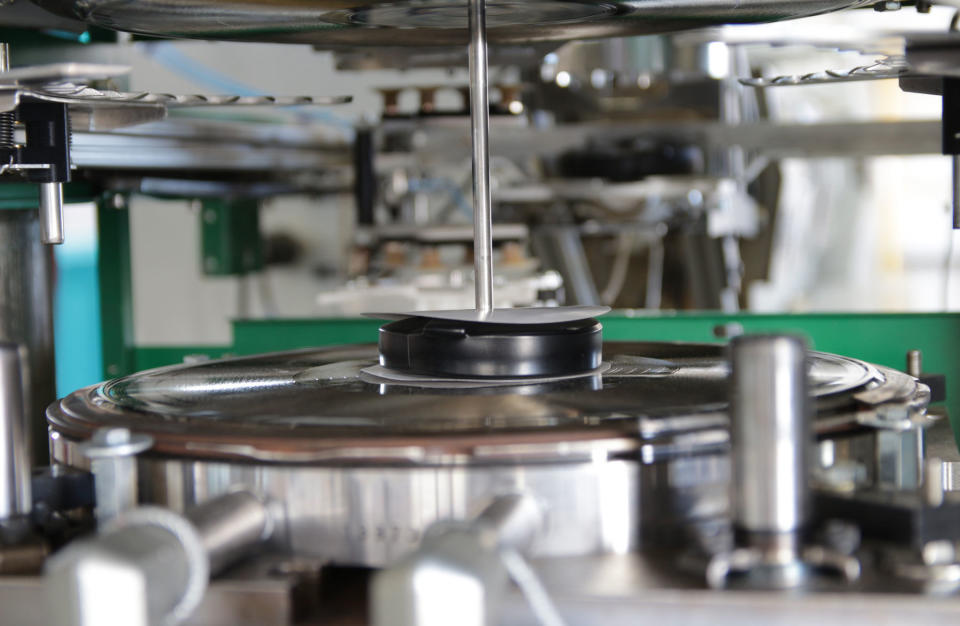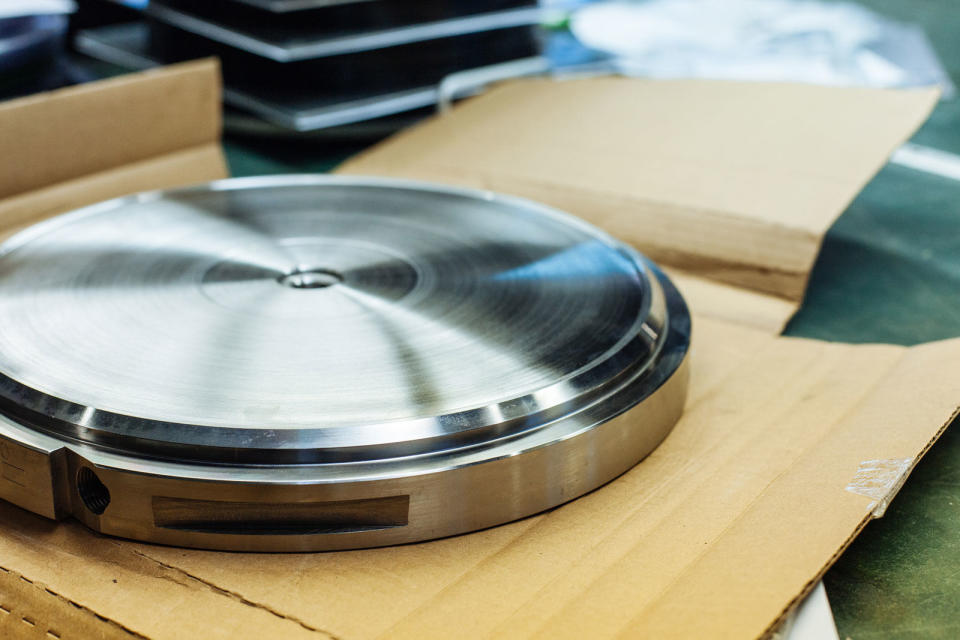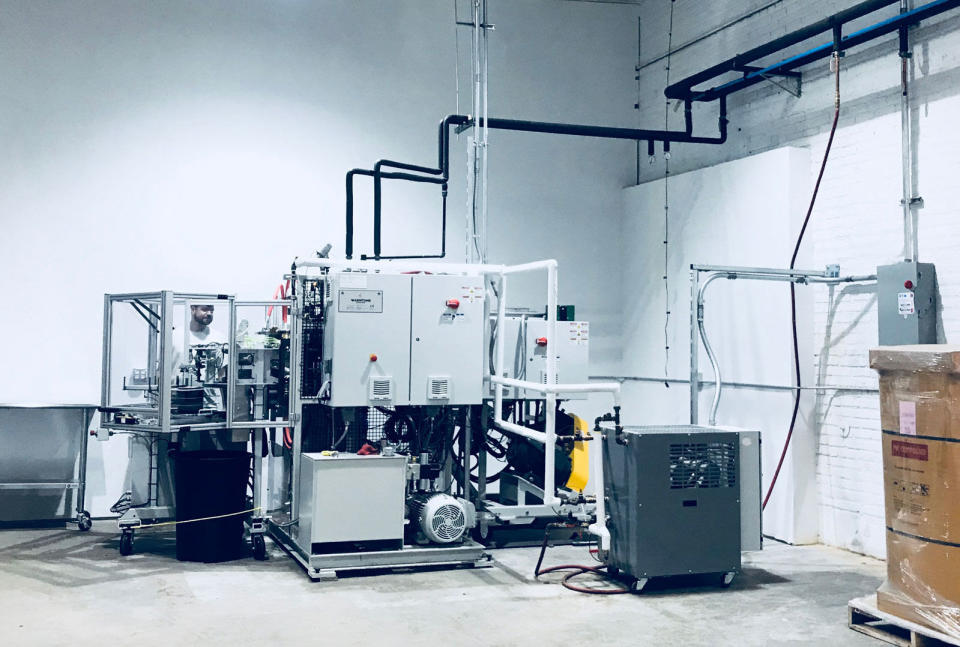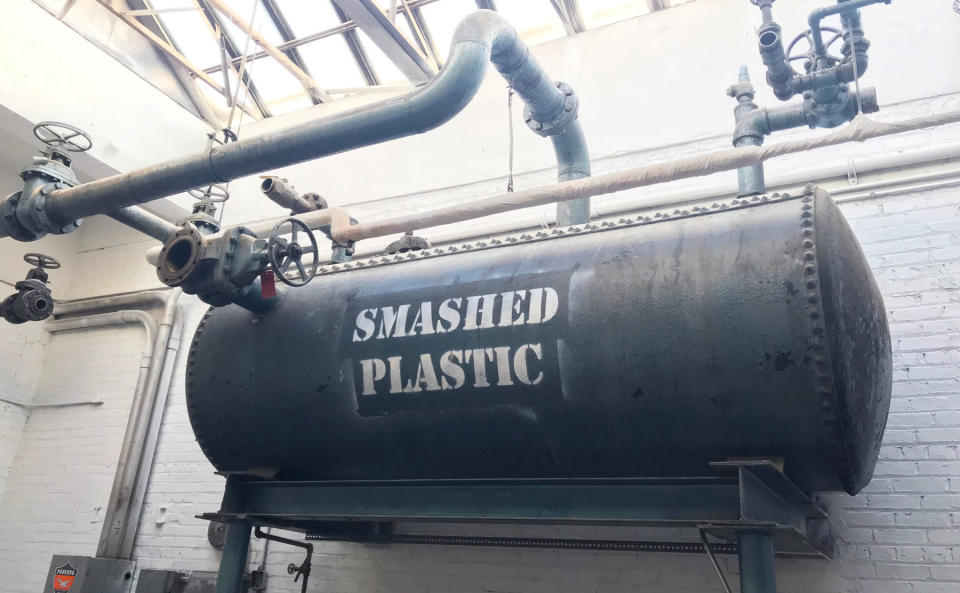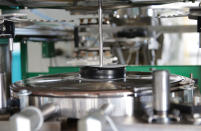Vinyl record production has finally joined the modern age
Viryl's breakthrough "steamless" tech brings economic and environmental benefits to an outdated industry.
When you think of manufacturing in the US, vinyl records probably isn't the first thing that springs to mind, but the industry has been chugging along as best it can. For decades, pressing plants have been using aging machines that require a complex infrastructure of piping for the steam-based heating (and cooling) mechanisms -- not to mention an engineering support team to keep them in working order. New vinyl presses just weren't being made, at least until a few years ago.
Two companies emerged to fill that need. Newbilt Machinery launched around 2015 in Germany with slightly updated (cloned) versions of old presses, adding electronic controls and hydraulic power. In February 2017, Jack White's Third Man pressing plant opened in Detroit running Newbilt's manual Duplex machines.
That same year, Toronto-based Viryl Technologies joined the market with its WarmTone presses. These machines weren't clones, but built fresh from the ground up including a modular construction, fully automated operation and remote machine monitoring (even from a mobile device) with its ADAPT software. Viryl's tech support can log into the system remotely to help troubleshoot any problems. Still, like Newbilt, they required a large boiler system and network of piping to support their operation. Anyone looking to start a pressing plant still faced hefty startup and maintenance costs, a difficult permit and zoning process, as well as a less-than-ideal impact on the environment.
Very recently, this all changed. Viryl has developed a first-in-the-industry: A steamless system that will make massive boilers and piping systems a thing of the past. Not only does it obviate some of the costs and permits previously involved, but it also becomes a more environmentally friendly process. Vinyl record pressing has finally bootstrapped itself into the modern age on all counts and stands to encourage new pressing plants to support vinyl's resurgent popularity.
Traditionally, the molds used to stamp out vinyl discs are heated by steam which is delivered to the press from a boiler. Viryl's steamless module electrically heats water to the desired 285 degrees Fahrenheit so the molds can melt pucks of PVC into a record. This new method of heating, removes gas, the boiler and extensive plumbing from the equation.
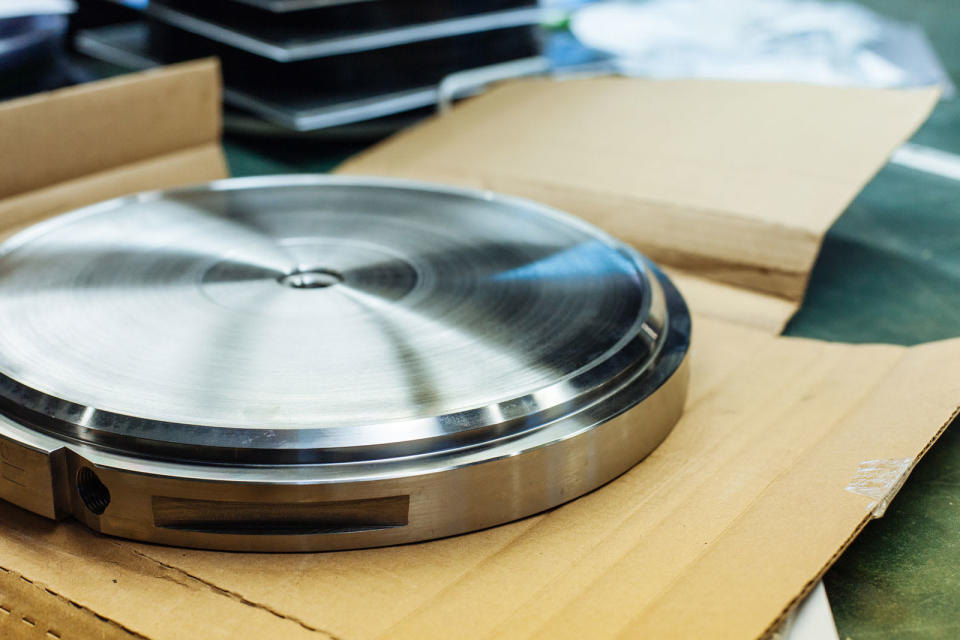
This new setup is a closed system that can live right next to the press, allowing for a smaller footprint in your workspace. It also reduces water waste, although you'll still need cooling lines. One of the biggest factors here, though, is that no boiler means none of the treatment chemicals used to keep a boiler in working order, so the environment wins. A setup that requires less square footage could also make Viryl's new presses a more attractive solution when space is limited or at a premium. Existing customers luck out as well, since it's possible to retrofit presses with the new option. Modularity FTW.
Still, the steamless module is very new. In fact only one WarmTone fitted with it has shipped so far: Smashed Plastic, one of the first new plants in the Chicago area in decades, although it won't officially open until February 2019. It's a joint venture between CHIRP Radio DJs and founders Andy Weber and John Lombardo, along with Matt Bradford and Stationary Heart label owner Steve Polutnik.
The timing couldn't have been better for Weber and Smashed Plastic, as they were actively searching for a record press to start the business -- and learning the trade as they go. Newbilt machines had been considered, especially knowing that Third Man had adopted them. Word of production delays, though, kept them looking around for other solutions. They soon discovered Viryl Technologies, which was a relatively convenient 8-hour drive away. The WarmTone's feature set, modular construction and the level of customer service and support at Viryl was what initially drew them to the company. But after several pitches for the steamless version, the decision became obvious.
While they'd been considering Viryl's machinery, the Smashed Plastic crew had been scouring the area for a viable location, pulling in quotes for boiler set up and inquiring about necessary permits with the city. Getting a manufacturing business off the ground is never easy, but even the few hard-won answers still left a lot of questions, especially in a Union-heavy area like Chicago. With all the restrictions and hassle involved in setting up a vinyl record pressing plant, going steamless made it that much easier.

All this talk about automation and the benefits of a steamless operation shouldn't downplay the seriousness of this industry, or the investment required. (New presses cost around $200,000.) Weber made it clear that it's still an artful and technological craft, and not a plug-and-play type of operation. So far, Smashed Plastic has been doing unofficial test runs for a select few customers and there's still lots of fine tuning left before the grand opening next year.
The need for a pressing plant, at least locally in Chicago, seems obvious when you consider that Smashed Plastic is already quoting dozens of orders in advance of their opening. Weber tells me they don't currently have plans to press for customers outside of the city right now, as there's plenty of a market already. This is generally due to most big pressing plants being tied up with major label reissues or new releases, making it difficult for smaller clients to get their records pressed without extensive delays.
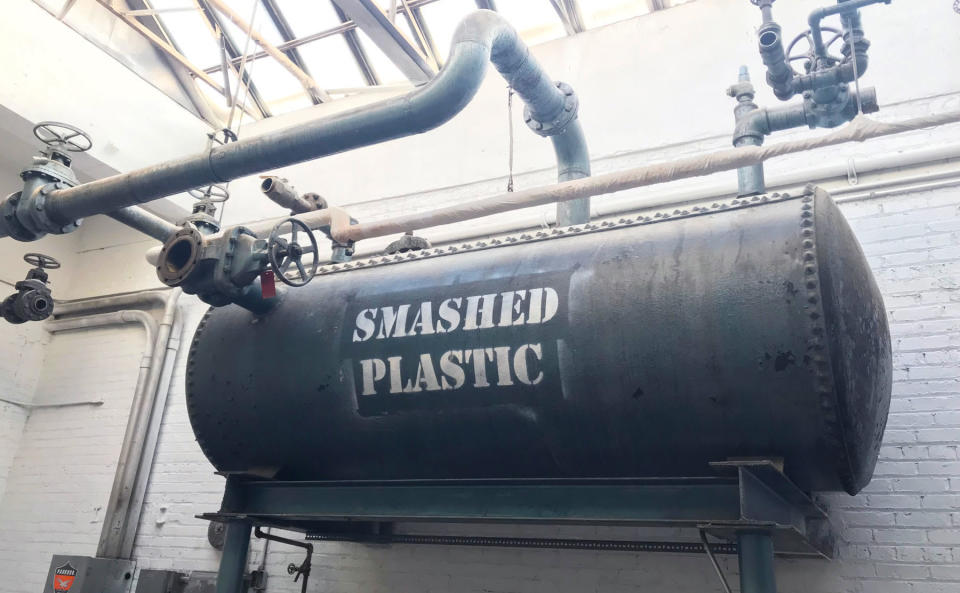
Viryl hopes its new steamless option may expand opportunities for others like Smashed Plastic looking to press vinyl, helping to feed the current need that's obvious in the market. It's also encouraging those interested in pressing records in less traditional surroundings, since the infrastructure requirements have been drastically reduced.
Still, you're not getting a machine that can easily be dropped into a boutique, where small batch records are pressed as you browse clothing racks. "You have to have a water chiller, a powerful electrical setup and drains, so it's not a pop-up shop item. It's industrial gear for sure" says Weber.
The record pressing industry has been long overdue for these advancements, and the environmental benefits of Viryl's Steamless WarmTone (or the scaled-down Steamless LiteTone) come at the perfect time as society tries to reign in its bad habits, yet still craves the analog tones of freshly pressed vinyl.


